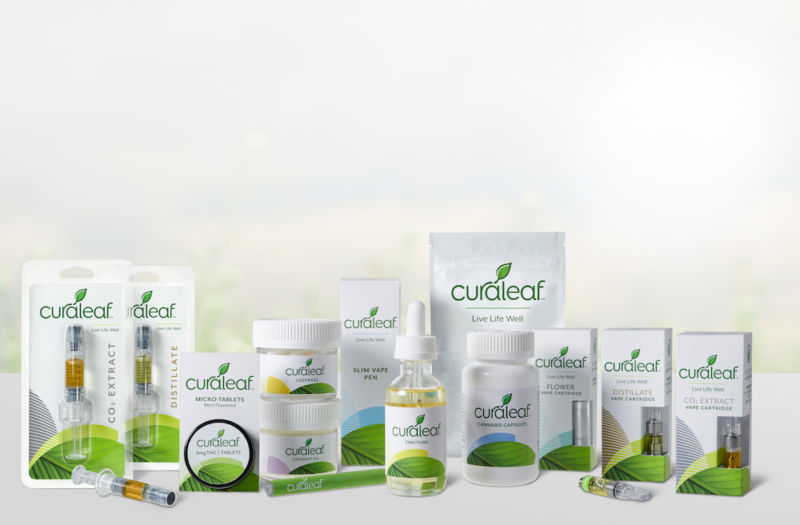
One CBD company sure has been busy.
The company Curaleaf claims that it has developed products that can treat a slew of the most formidable conditions found in humans, including cancer, Alzheimer’s, Parkinson’s, depression, opioid withdrawal, chronic pain, anxiety, post-traumatic stress disorder (PTSD), and attention deficit/hyperactivity disorder (ADHD). It also has products said to treat anxiety, pain, and diabetes in cats and dogs. (The product comes in bacon and salmon flavors.) And just one ingredient in all of its products is responsible for these remarkable medical breakthroughs: the cannabis-derived compound cannabidiol (CBD).
Sadly, those claims are not backed by evidence.
This week the Food and Drug Administration announced that it sent Curaleaf a warning letter for illegally selling unapproved drugs and making unsubstantiated treatment claims.
Such claims that CBD products can treat serious diseases and conditions, “can put patients and consumers at risk by leading them to put off important medical care,” Acting FDA Commissioner Ned Sharpless said in a statement. “Additionally, there are many unanswered questions about the science, safety, effectiveness and quality of unapproved products containing CBD.”
Legal haze
CBD is a relatively safe component of cannabis that appears to have no addiction risks and does not generate a “high.” Moreover, it has been investigated for a number of potential therapeutic benefits, including pain and seizures. Last June, the FDA approved the first CBD-based drug, Epidiolex, to treat two rare and severe forms of epilepsy, Lennox-Gastaut syndrome and Dravet syndrome, in patients aged two years or older. But solid evidence supporting CBD’s use for other conditions is still lacking.
At the time of the FDA approval, the Drug Enforcement Administration considered CBD a Schedule I drug, as is cannabis. Schedule I drugs include heroin and LSD and are defined as those that have “no currently accepted medical use and a high potential for abuse.” With the FDA-approval of Epidiolex at odds with the DEA’s Schedule I listing, Congress legalized CBD in December—kind of.
Federal lawmakers legalized hemp production via the Hemp farming Act of 2018, which was rolled into a broader farm bill. CBD can be extracted from hemp, which is a strain of cannabis that has lower levels of the psychoactive cannabinoid, Tetrahydrocannabinol (THC), that gives cannabis-users a “high.” Under the farm bill, CBD can be legally extracted from hemp and sold as long as it had no more than 0.3% THC.
But the legality issue is still very murky. There are varying state laws and restrictions to apply, uncertain sources of CBD, poor quality controls on THC levels in CBD products, and, of course, unapproved and unsubstantiated health claims. If CBD makers want to make health claims about their products, they need FDA approval. And that would require clinical evidence.
High time
Still, despite the legal fog, the CBD market has exploded—as have bunk health claims. The FDA has its hands full. In its crackdown of Curaleaf, the agency noted it was still sorting through the CBD weeds and had set up a “high-level internal working group to explore potential pathways for various types of CBD products to be lawfully marketed.” The organization is trying to work out not just scientific data on CBD effects, but also appropriate safety, marketing, labeling, and quality control regulations.
As FDA Principal Deputy Commissioner Amy Abernethy put it:
We understand this is an important national issue with public health impact and of interest to American hemp farmers and many other stakeholders. The agency has a well-established pathway for drug development and drug approvals, and we remain committed to evaluating the agency’s regulatory policies related to other types of CBD products. We plan to report our progress by early this fall as we expedite our work to address the many questions about CBD. The step-wise, science-based approach we’re taking protects patients and the public health, fosters innovation for safe and appropriate products, and promotes consumer confidence.
As for Curaleaf, the company said it is “committed to the highest standards of quality and compliance, and will work collaboratively with the FDA to resolve all issues addressed in the agency’s letter.” It has 15 working days to do so.
https://arstechnica.com/?p=1541865

